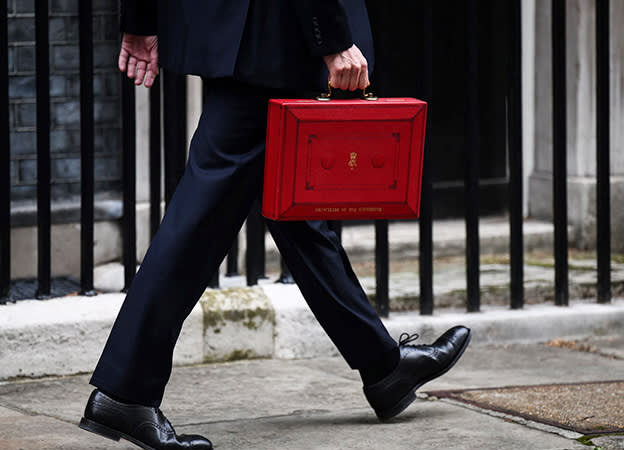
Set against the backdrop of a looming new banking crisis stretching from the US to the EU, there was a high risk that Chancellor Jeremy Hunt’s first proper Budget would be completely eclipsed, especially with the deluge of leaks revealing the best bits beforehand – although he held back the total abolition of the lifetime allowance and the scale of the increase in the annual pension allowance.
Fears in the US over the extent of unrecognised bond losses, unhedged exposures and panicking depositors had receded slightly by mid-week, allowing the chancellor to briefly reclaim the limelight. But that’s not where the banking story ends. It has heaped new pressure on Credit Suisse in particular, and there are repercussions for US monetary policy given how falls in bond values have injected fragility into parts of the banking system. The Silicon Valley Bank (SVB) episode will test, and may curb, the Fed’s appetite for accelerating its use of interest rates to cool price rises. We’ll find out next week if there is a change of tack.
Another fallout could be increased resistance to one particular UK growth initiative – the theme at the heart of this week’s Budget. The government harbours ambitions to release locked-up reserves at banks and insurers for investing in infrastructure, and fledgling tech and biotech businesses. But one reason why SVB has not triggered a second financial crisis is because banks have been forced to be well-capitalised. Tampering with that now to achieve other goals could be foolhardy.
The Budget made it clear, however, that plans to channel investment from defined-contribution pension funds “and other sources” into long-term assets are going ahead. This however was only one strand in a multi-strand growth Budget.
Improved economic forecasts (the OBR has reversed its prediction of recession, GDP rose by 0.3 per cent in January, tax receipts have increased plus the energy subsidy has cost far less than envisaged) meant the chancellor was in a less draconian mood than last November.
Hunt may still have one eye on his goal of reducing debt, on potential new headwinds in an unstable world and an election in 2024/25, but the focus was firmly on helping businesses. While there was no backtracking on 25 per cent corporation tax, there were several key support measures. The new capital allowances plan that allows all investment in IT, equipment plant and/or machinery to be deducted in full and immediately from taxable profit will be available for the next three years and the intention is to make it permanent – although, points out RSM, the election could get in the way of that. The OBR reckons this will boost business investment by around 3 per cent and cost the exchequer £9bn a year. This was complemented by enhanced R&D tax breaks targeted at smaller life sciences businesses. Both allowances are important in helping to stem the UK’s drift into decline.
Then there were the measures to help fill 1mn job vacancies with more generous childcare subsidies, and a dramatic loosening of the pension rules to encourage people to both stay in the workforce for longer and return to work if they have left.
The surprise abolition of the lifetime allowance, described by James Jones-Tinsley at Barnett Waddingham, as “the opposite of a band-aid on a bullet wound; it is an operation on a graze”, targeted those thinking of taking early retirement – specifically medical professionals given that at least 34 per cent of all people who exceeded the annual allowance in 2019/20 were members of the NHS pension scheme according to data from Quilter. It may not ultimately have much impact on employment numbers but will benefit many people saving for retirement. All three big pension changes (see page 11) are a compensation of sorts for the cuts to capital gains tax relief and dividend allowance, and higher personal tax from next month.
So lots of strands, all carefully and rightly focused on key issues for business and individuals, and glued together into a foundation of sorts for growth. Whether they have the power to propel us into a golden future of strong growth is another matter. The big challenge yet to be addressed is how the chancellor intends to counter the dual threat from the US’s Inflation Reduction Act and the EU’s Net Zero Industry Act.
In Hunt’s own words, there is still a long way to go.






